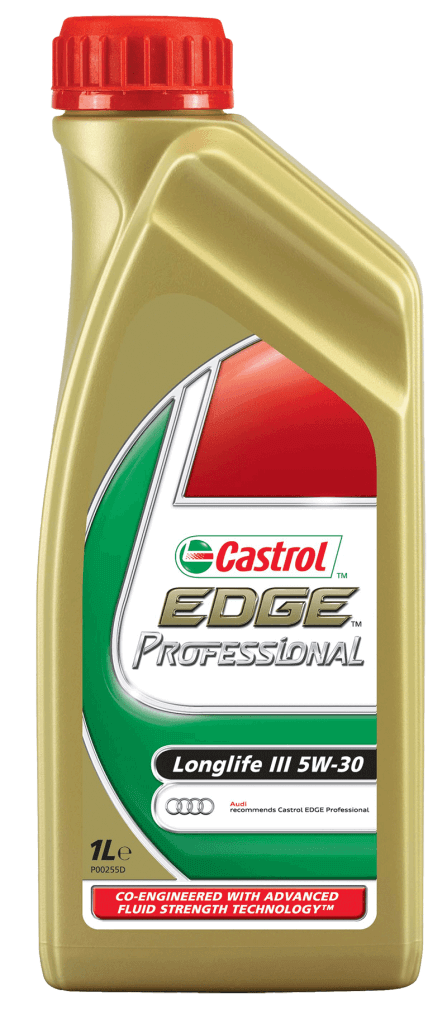
A so-called LongLife oil is a fuel-efficient engine oil, typically with SAE areas from 0W-30 to 0W-40.
If you drive a car with LongLife Service regime (e.g. some vehicles by Volkswagen or Audi), you have to use LongLife oil.
The vehicle calculates the status of the motor oil, using various measurements. It will then show you the remaining time/kilometers until the next service is required.
In order to do this, data such as gas consumption, oil level, oil temperature, speed, the manner in which you brake or speed up and the revolutions per minute will be evaluated.
Even an automobile using LongLife engine oil will not be able to overcome any fundamental laws of physics or chemistry: if you use your vehicle mainly in the city or for short distances, the motor oil will wear out more quickly and you will have to change the oil sooner.
Advantages of LongLife oil/ LongLife servicing:
The service intervals are not set; they depend on how you drive your automobile. Appropriate driving (that is economical driving; long distance driving) will increase the time until your next oil change is due. That will save you money. However, you have to keep in mind that LongLife oil might be more expensive than conventional motor oil.
Please note: vehicles with LongLife servicing need those specific motor oils!
If you do not want to use LongLife oils, then visit your repair shop and get your car reset to a conventional service regime (set time intervals for changing motor oil).
Keep in mind that it makes a difference whether you use oil that is actually approved by the manufacturer or oil that only corresponds with the requirements that are necessary for approval. This is especially important when it comes to issues connected to warranties or more.

Sadly truth and facts are rarely found in forums and on the web these days.
And today’s generations were raised in broken homes so they know nothing about cars or motor oil.
The FACT is there are more engines being destroyed by 0w-20 and 5w-20 oils than any oil related failure in history simply because owners know nothing about oil viscosity vs climate.
The lie that today’s multi weight oils are “far superior” to the oils of a few years ago is a pure lie in fact the much wider vicosity range oils being used by most are much worse since they contain massive amounts of plastics that shear down and create deposits.
People are even being fooled into using these weak multiweight oils in mowers, motorcycles, and ATVs which has caused a massive increase in worn out engines.
A straight weight oil is ALWAYS the best oil to use if the climate allows it.
This USED to be common knowledge and common sense but today’s youth have neither
It’s easy to make a motor oil that will last 10,000 miles under laboratory conditions but then we all don’t live in laboratories.
Fuel dilution from GDI engines, turbos, stop and go city driving, towing and hauling all shorten the life of oil.
So the 10,000 mile oil that left the lab quickly becomes contaminated and sheared down in viscosity by 5,000 miles or even less.
Castrol makes one of the best oils on the market so you can’t go wrong with ANY of them regardless of what your need or application
The fact is CLEAN oil is the best oil to run.
And the more often you change your oil, the longer your engine will last.
Going longer than 5,000 miles will destroy most engines and those doing alot of city and stop and go driving need to stick with every 3,000 miles.
Only straight weight oils provide maximum protection but they require seasonal oil changes with changes in climate.
Multi viscosity oils use polymers to try and IMITATE straight oils but those polymers they use provide zero lubrication and tend to shear down over time leaving you with the lowest viscosity number on the bottle which will quickly destroy your engine.
And the wider the viscosity range, the more of these polymers are used so oils with wide ranges are a bad idea.
Unless you live in Alaska or the Arctic circle you should not be using a winter rated oil i the summer or if you live in a warm climate.
Using those thin winter oils in the summer heat WILL destroy your engine which is why most modern engines now have oil burning and worn out bearings like never before.
As ALWAYS you need to use the right oil viscosity for YOUR climate NOT the ultra thin
winter oils used to satisfy the CAFE rules.
And unless you live in the ARCTIC, you should never use 0w-20 oil period.
Ever since the first cars came with 0w-20 oil in them bearing failures, and heavy oil burning have now become the new norm.
I’m drive VW passat 1.8 TSI B7 model. Mostly drives in city only, what is the recommended engine oil to use?